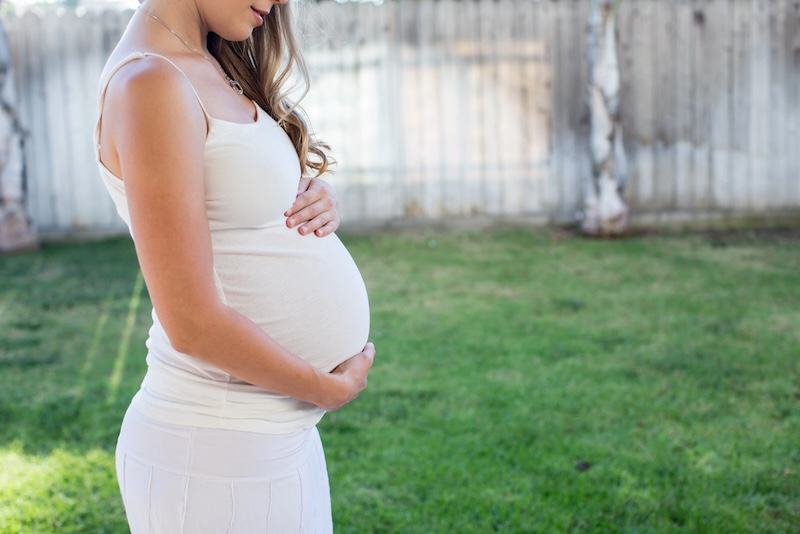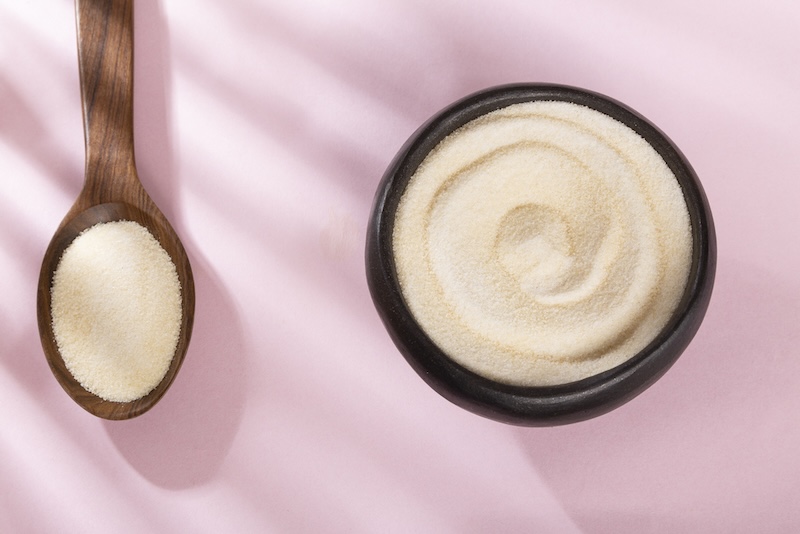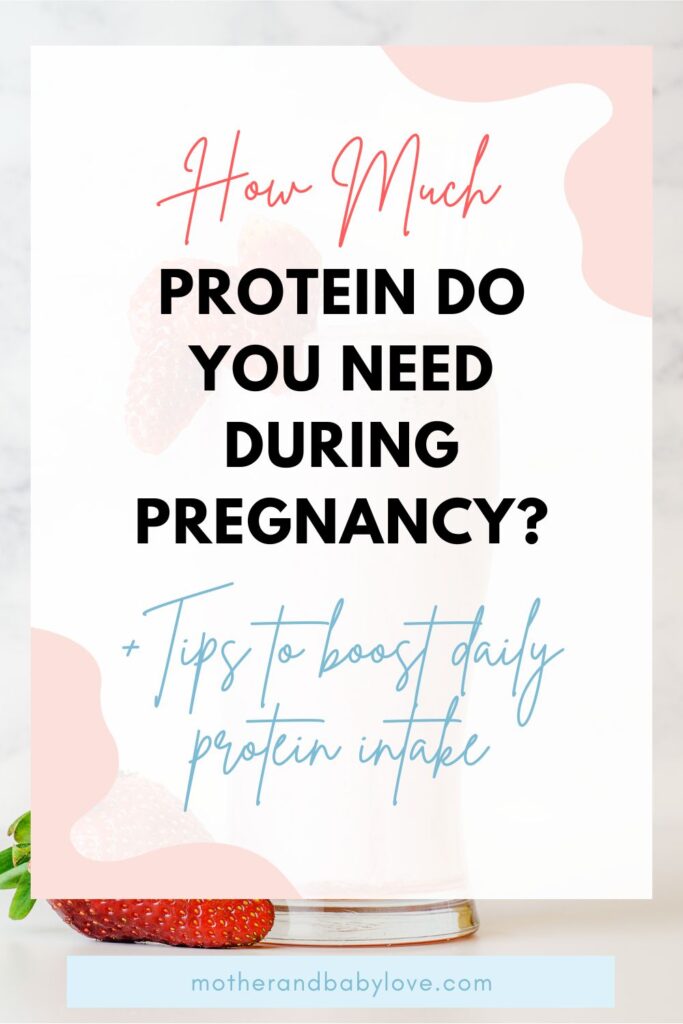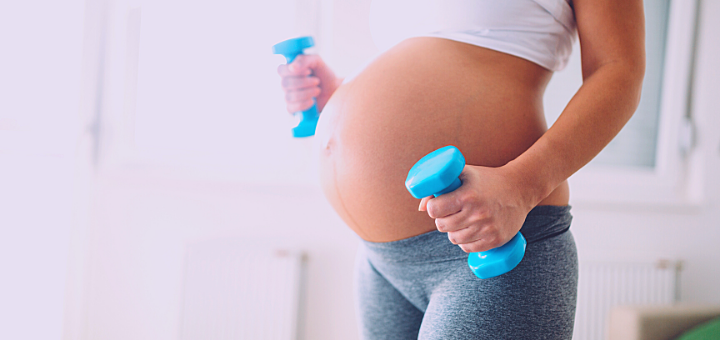Pregnancy is a beautiful journey—but also one that comes with increased nutritional needs, especially when it comes to protein. If you’ve ever wondered how much protein you actually need during pregnancy, you’re not alone. In this post—sponsored by my friends at Naked Nutrition—we are breaking down protein needs for mamas-to-be and sharing some of the ways for you to make sure you are getting enough each day (including their dreamy Strawberry Cream Protein Oats!).
Protein During Pregnancy

Your nutrient needs change dramatically during pregnancy; you are growing a human, after all. Your body pulls what it needs for your growing baby directly from you, which means you need more.
This is especially true for protein. But most women have no idea how much protein they need during pregnancy or even that they need more, so let’s dive in.
The Role of Protein During Pregnancy
Protein plays many roles during pregnancy, some of which you may not have even thought of. But most importantly, protein helps to build and support your growing baby.
Disclaimer: Some links on this page are affiliate links and as an Amazon Associate, I earn from qualifying purchases
Importance of protein for fetal growth and development
Protein is the building block for your baby’s growing body, including its organs, muscles, and tissues. Those sweet little toes? You need protein for those.
Protein is also required for the development of the placenta, which helps to nourish your growing baby during gestation as well as in helping maintain increased blood volume during pregnancy to circulate adequate oxygen to your baby [1].
These are just among the few benefits from a very long list.
How protein supports maternal tissue growth, repair, and overall health
While protein is essential for your growing baby, it’s also essential for mom. Creating a human with your body takes a lot of work, and protein is required for most of it.
Consider the physical demands of growing a baby. Protein can help to support those demands by supporting your muscle tissue. Your growing uterus also needs a lot of protein to accommodate those changes [1].
With all that aside, protein is an important nutrient for overall health and well-being, as it supports most of your body’s essential processes.
Recommended Protein Intake for Pregnant Women

Now that you know why it’s important to eat more protein, let’s look at how much you should be getting.
Overview of current dietary guidelines and recommendations
The Academy of Nutrition and Dietetics recommends pregnant women get 1.1 grams of protein per kilogram of body weight per day compared to the requirements for non-pregnant adults of 0.8 grams of protein per kilogram of body weight per day [2].
This means if you weigh 150 pounds (68kg), you will need at least 75 grams of protein daily. This number will continue to increase along with expected weight gain from each trimester of pregnancy. So you may start out needing 75g of protein, but if you gain 25 pounds during your pregnancy, you will need to eat at least 87 grams by the time you are ready to give birth.
Your protein needs will continue to be elevated after birth, especially if you plan to breastfeed your new baby.
Benefits of Adequate Protein Intake During Pregnancy

Prioritizing protein during pregnancy and beyond has many benefits, including supporting the healthy development of your baby and enhancing your postpartum recovery.
Supporting healthy fetal development and organ formation
As mentioned earlier, protein is imperative for the proper development of your baby’s tissues, muscles, and organs. If you don’t get enough during pregnancy, you are putting your baby at risk for low birth weight, developmental delays, and chronic health problems [3].
Enhancing maternal energy levels, immune function, and postpartum recovery
Getting adequate protein during pregnancy is also beneficial for the mom. Protein can help keep your energy levels up (which is hard when you are building a baby from scratch), support a healthy immune system, and aid in a quicker postpartum recovery.
This means an easier pregnancy, birth, and recovery. Who doesn’t want that?
Strategies to Meet Your Protein Needs
If you are struggling to meet your protein needs, below are some easy ideas to boost your daily protein intake.
Tips to boost daily protein intake
- Swap out cereal in the morning for Greek yogurt, cottage cheese, or eggs, which are richer in protein. Or include a higher protein cereal with milk and top it with nuts or seeds for additional protein.
- Include easy proteins for snacks, such as peanut or almond butter on fruit or toast, a handful of mixed nuts, or cheese and crackers.
- Swap out salty snacks like chips and popcorn for roasted edamame or chickpeas for a higher protein option that still fits your cravings.
- You can also swap out regular pasta for higher protein options such as chickpea or lentil pasta (if you like them!)
- Use Greek yogurt or cottage cheese in place of mayonnaise for a higher protein dip (you can make this sweet or savory!)
- Add cottage cheese or regular cheese to your eggs, or use this as a dip for your fruits or veggies.
- Lastly, always try to include a good source of protein every time you eat and focus on eating the protein first if you are struggling with your appetite.
- Try this clean and delicious strawberry cream protein oats from Naked Nutrition
Bottom Line
You need more protein during pregnancy, about 1.1 grams of protein per kilogram of body weight. Hitting those higher protein goals when you are pregnant may be a challenge, especially if you are suffering from food aversions or morning sickness. But it is well worth the effort to make sure you are providing adequate nutrients for the growth and development of your baby and the sake of your health and well-being during pregnancy and postpartum.



